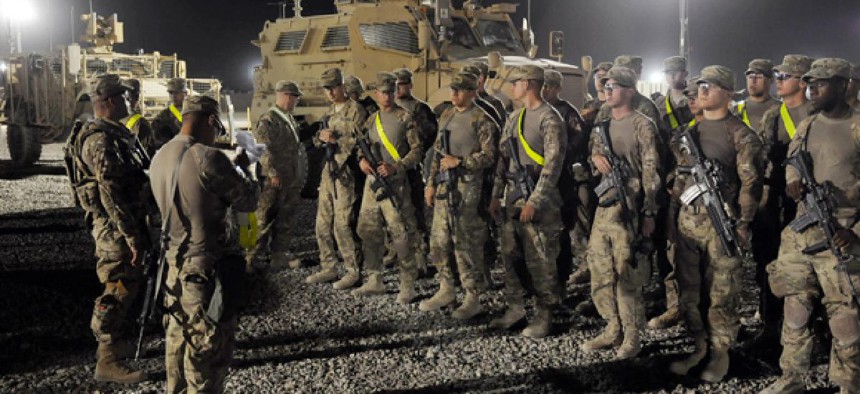
U.S. soldiers from the 4th Brigade, 82nd Airborne arrive to a yard where they will turn in their vehicles and equipment as part of drawdown of 23,000 U.S. troops at the Kandahar Air Field south of Kabul, Afghanistan. U.S. Army
Vets face delays in receiving benefits due to lack of records
Report finds units in Iraq and Afghanistan have not been managing their daily field reporting.
The U.S. military has done an inadequate job of maintaining field records from activities in Iraq and Afghanistan, according on a joint investigative report from ProPublica and Seattle Times, increasing the difficulty for many veterans to receive benefits upon their return.
The report pointed to U.S. Central Command in Iraq and the Army as the primary agents responsible for the lack of sufficient records, including after-action write-ups and intelligence reports from daily combat. Confusion between the two entities regarding who was accountable for record maintenance -- as well as a lack of commitment from high-ranking officers -- led to the destruction of records, the report said.
The investigation also found the Pentagon’s focus on ensuring classified information did not wind up in the wrong hands forced many Army units to destroy their records before leaving the theater.
A lack of field reports has made it harder for service members to receive benefits from the Veterans Affairs Department, especially in the case of those suffering from post-traumatic stress disorder. VA said missing records have not delayed veterans’ claims as the department can use medical and personnel records to confirm service, but the investigation found a lack of reports on day-to-day activity can significantly slow down the delivery of benefits.
NEXT STORY: Cheaper, greener housing for veterans







